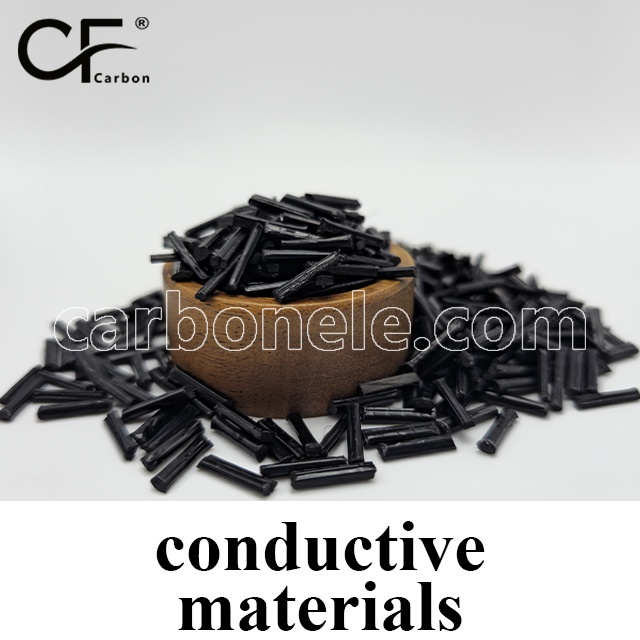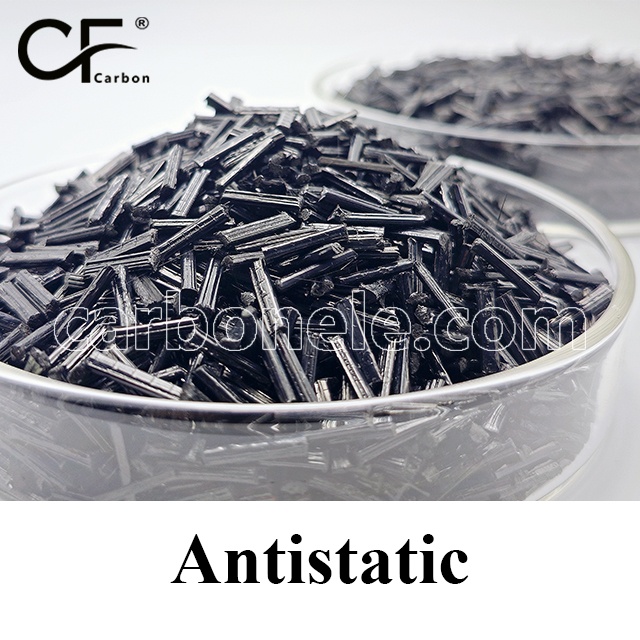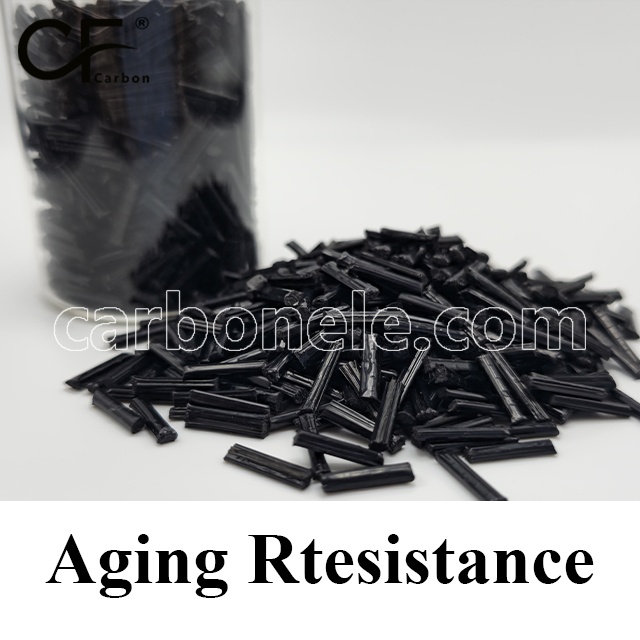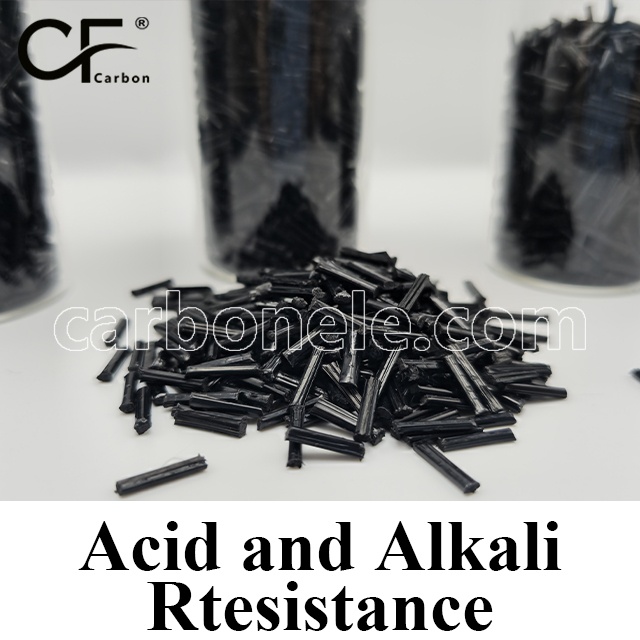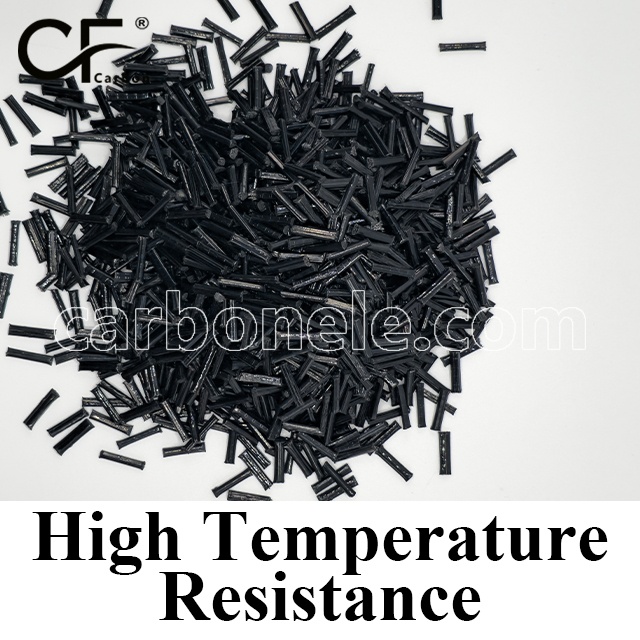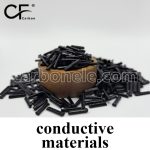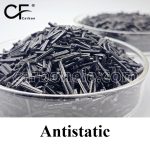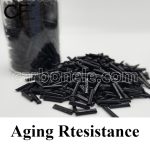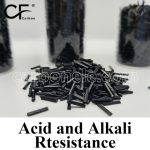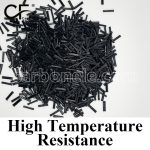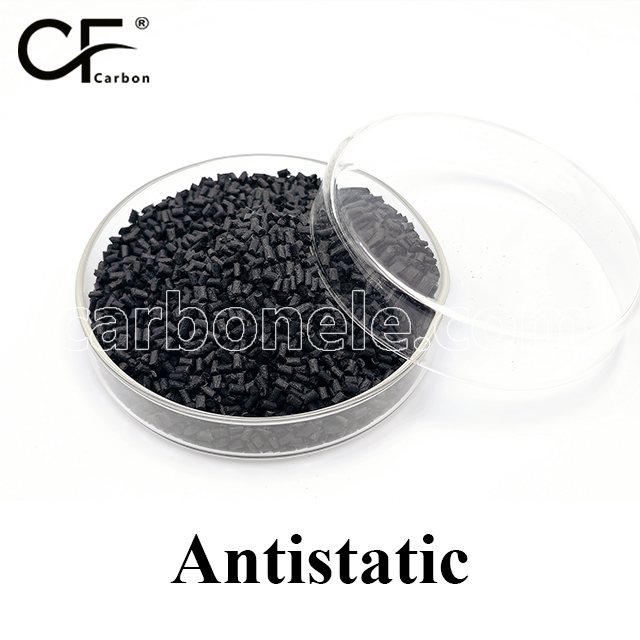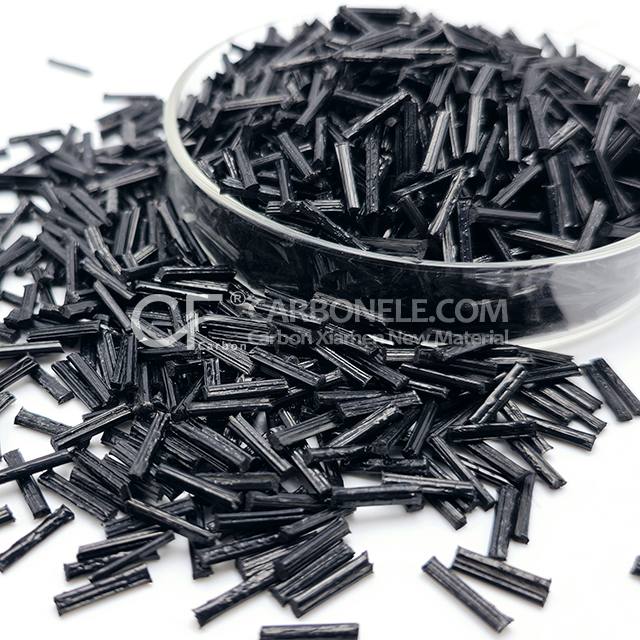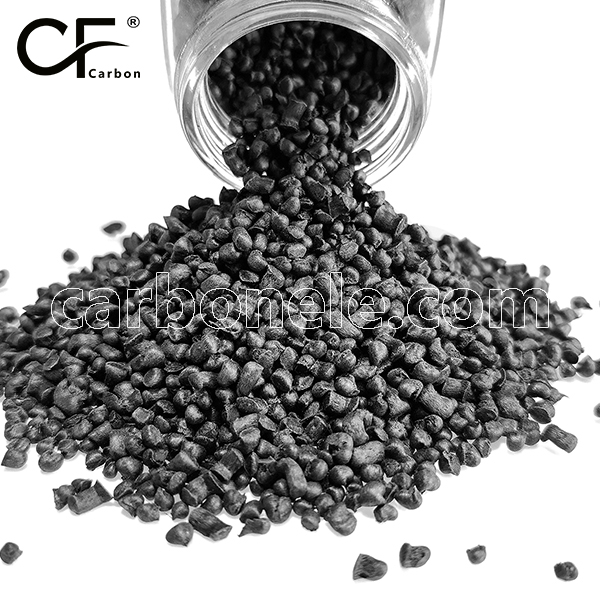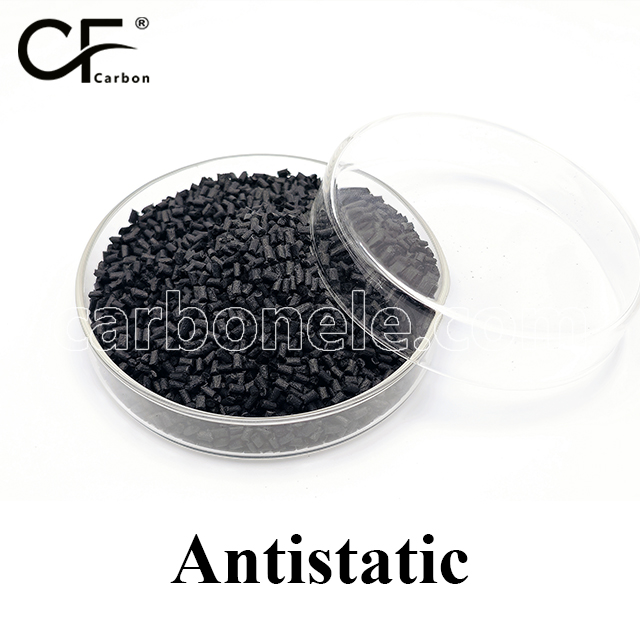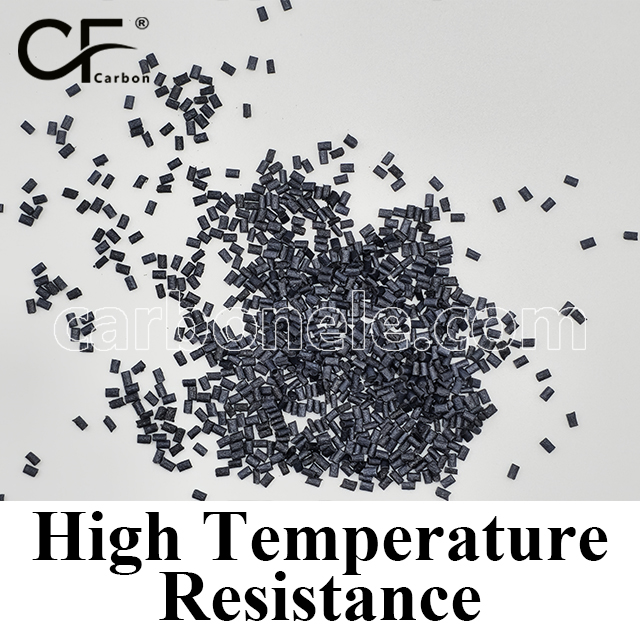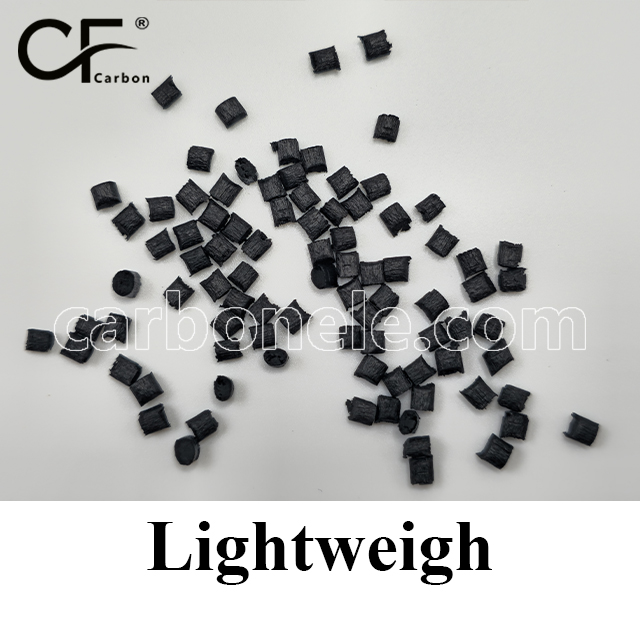
TPU-LCF Superior 10% CF Machine Couplings
TPU-LCF 10% carbon fiber reinforced couplings for industrial machinery. Superior vibration damping & 30% longer lifespan. Custom solutions available
- Manufacturer: Carbon New Material
- OEM/ODM: Acceptable
- Color: Black
- Free samples: ≤10kg
- MOQ: 100kg
- Port: Xiamen
- Model: TPU-CF-BCA1
- Fillers: Carbon fibers
- Matrix Resin: TPU
- Appearance: Granules
- Grade: Injection/extrusion grade
- Packaging: 25kgs/bag
TPU-LCF Superior 10% CF Machine Couplings
Introduction to TPU-LCF
TPU-LCF is an advanced thermoplastic polyurethane composite reinforced with carbon fiber. By integrating 10 percent carbon fiber into the TPU matrix, this material achieves a unique balance of flexibility, strength, and wear resistance. For machine couplings, where performance under continuous load and precise alignment are critical, TPU-LCF offers a superior solution that maintains reliability even in challenging operational environments.
The mechanical properties of TPU-LCF allow it to handle torque transmission while absorbing vibrations, reducing operational noise, and extending component lifespan. This makes TPU-LCF a preferred choice for applications where both mechanical stability and durability are essential.
Why TPU-LCF is Ideal for Machine Couplings
Machine couplings are used to connect rotating shafts, ensuring torque is transmitted efficiently between components. They often operate under constant motion, facing stress from misalignment, vibration, and load variations. TPU-LCF addresses these challenges effectively.
Enhanced Mechanical Strength
With carbon fiber reinforcement, TPU-LCF provides improved stiffness without sacrificing the natural flexibility of TPU. This enables couplings to maintain shape and function under sustained load, ensuring long-term operational reliability.
Superior Wear Resistance
Machine couplings experience friction at contact points. TPU-LCF’s improved wear properties reduce surface degradation, which minimizes the need for frequent replacements and maintenance.
Vibration Damping Capability
One of TPU-LCF’s advantages is its ability to absorb vibration while transmitting torque. This characteristic not only improves machinery performance but also protects connected components from excessive stress.
Application Example – TPU-LCF in Industrial Machine Couplings
A practical example of TPU-LCF’s performance can be seen in industrial machine couplings used in automated assembly lines. In such environments, couplings must operate continuously while handling frequent load changes. TPU-LCF’s combination of rigidity and resilience ensures that torque transmission remains consistent, even in high-speed and high-precision operations.
Resistance to Environmental Stress
In addition to mechanical performance, TPU-LCF resists damage from oils, greases, and moderate chemical exposure. This extends its usability in diverse industrial settings where other materials might degrade quickly.
Lightweight and Efficient
Compared to metal couplings, TPU-LCF offers a significant weight reduction, which can improve energy efficiency in rotating machinery. This also makes installation and maintenance easier.
Benefits of Using TPU-LCF for Machine Couplings
By choosing TPU-LCF for machine couplings, manufacturers gain several performance and operational advantages:
-
Longer Service Life: Resistance to wear, fatigue, and environmental degradation.
-
Lower Maintenance Costs: Reduced downtime due to part replacement.
-
Improved Machinery Efficiency: Lightweight structure and vibration control.
-
Design Versatility: Easily molded into complex shapes with tight tolerances.
Compatibility with Modern Production
TPU-LCF can be processed using standard injection molding and precision manufacturing techniques. This ensures consistent quality across production runs, making it suitable for both small-batch custom couplings and high-volume industrial supply.
Summary
TPU-LCF delivers an outstanding combination of strength, flexibility, and durability for machine couplings in industrial and mechanical applications. Its enhanced mechanical properties, wear resistance, and vibration damping make it a superior choice for manufacturers seeking to optimize performance and reduce maintenance needs.
By incorporating TPU-LCF into coupling designs, industries can achieve better operational stability, longer component lifespans, and improved efficiency. TPU-LCF is more than just a material; it is an engineering solution for reliable torque transmission in demanding machinery.
If you want to buy Talc Filled TPU-CF Raw Materials or understand more about carbon fiber reinforced TPU produced by Carbon New Material, please feel free to contact us at any time.
To learn more about CFRTPs, please click here.
How to Buy?
If you want to obtain information such as product specifications, performance, and price, choose a suitable product according to your own needs. Meanwhile, you can ask the manufacturer to provide samples for testing to ensure that the material meets your usage requirements. If you are interested in purchasing this composite material, please contact the manufacturer Carbon (Xiamen) New Material directly.
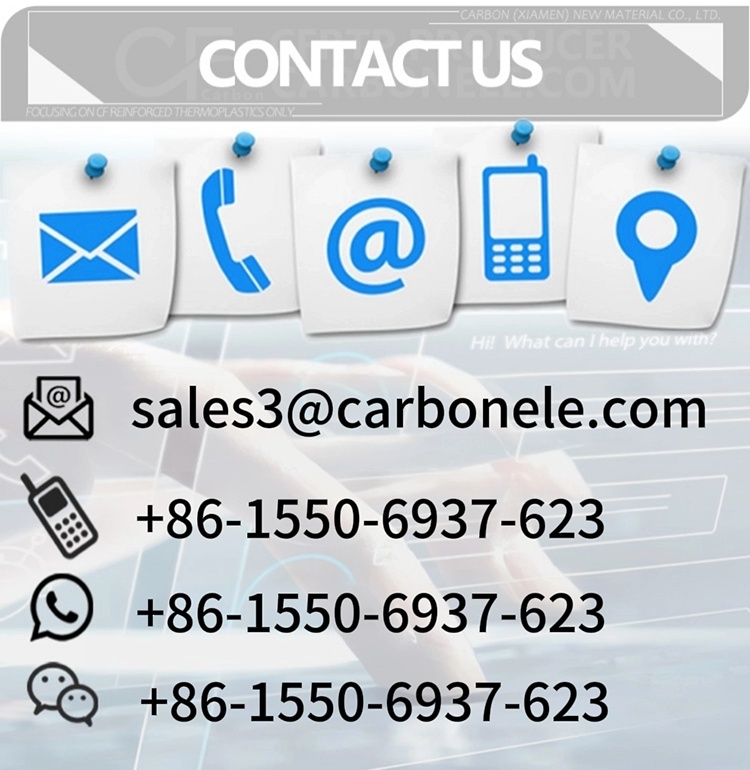
Frequently Asked Questions
Carbon (Xiamen) New Material Co., Ltd. aims to provide buyers with "one-stop" worry-free high-quality services. Here you can find all information about carbon fiber engineering plastics. If you still have questions, please send us an email for consultation!
-
How can I contact the manufacturer of a product that interests me?
When you find a product you are interested in, you can contact the manufacturer directly by sending an email and we will get back to you as soon as possible.
-
How do I find the products that interest me?
All you need to do is enter the keyword, product name in the search window and press the Enter key on your keyboard. Your search results page will then be displayed. You can also search within the product category pages on the home page. Each category is divided into subcategories, allowing you to refine your search and find products that interest you.
-
Where will I find a buying guide?
Please contact our after-sales service directly and we will provide you with a comprehensive operating guide.
-
What are CF Reinforced Thermoplastic Composites?
CF Reinforced Thermoplastic Composites are materials where carbon fibers are incorporated into a thermoplastic matrix. They combine the strength and stiffness of carbon fibers with the processability and recyclability of thermoplastics. For instance, they are used in automotive parts like bumper beams.
-
What are the benefits of CF Reinforced Thermoplastic Composites over traditional composites?
The key benefits include faster production cycles, easier recyclability, and better impact resistance. They also offer design flexibility. An example is in the manufacturing of consumer electronics casings where complex shapes can be achieved more easily.
-
How are CF Reinforced Thermoplastic Composites processed?
Common processing methods include injection molding, extrusion, and compression molding. Injection molding is widely used for mass production. For example, in the production of small components for the medical industry.
-
What industries use CF Reinforced Thermoplastic Composites?
They are utilized in aerospace, automotive, medical, and sports equipment industries. In aerospace, they can be found in interior components. In the medical field, they might be used in prosthetics.
-
How does the carbon fiber content affect the properties of the composites?
Higher carbon fiber content generally leads to increased strength and stiffness but may reduce ductility. A moderate content is often balanced for specific applications. For example, a higher content might be preferred in structural parts of a race car.
-
What are the challenges in using CF Reinforced Thermoplastic Composites?
Challenges include higher material costs, complex processing equipment requirements, and ensuring uniform fiber dispersion. Issues with adhesion between the fibers and the matrix can also arise. An example is in achieving consistent quality in large-scale production.







